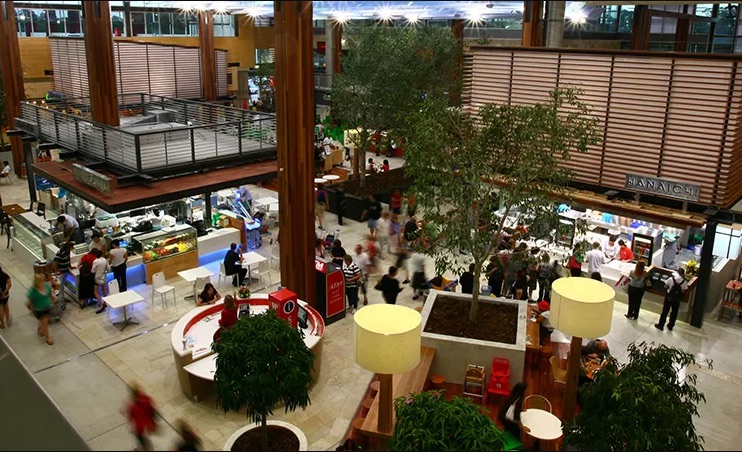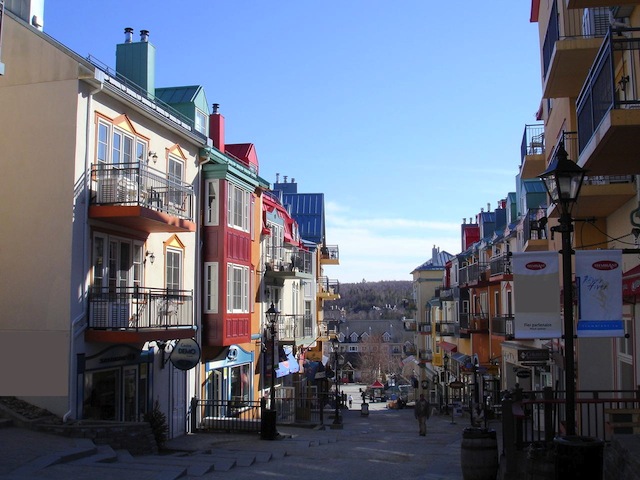On the back of last week’s discussion about Amazon’s Australian expansion, I spoke to Sydney community radio station 2SER-FM this morning about the challenges facing suburban shopping strips.
Like the rest of the world, Australia’s suburban and small town retail strips have been doing it hard for a generation. While technology has a lot to do with this, it’s not online commerce that’s the killer.
The decline, recovery and shift of the suburban retail strip really started in the 1960s as people moved to the suburbs and started shopping at supermarkets – the technology driving that shift was affordable motor cars and refrigerators.
Around the developed world, the removal of tram (or streetcar) systems during the 1950s and 60s also hurt the inner city shops as local foot traffic declined. In Sydney it’s striking that fifty years after the removal of the tram system those suburbs that developed around them are still easily recognisable.
Shifting back to the city
In the 1980s another shift happened. Suddenly in the inner city became fashionable again for affluent and young residents and a new generation of shopkeepers sprung up attracted by relatively cheap rents.
The shift we’re now discussing is that generation of the 1980s and 90s has been dispersed as rents become increased or shops are demolished for apartment blocks that cater for the populations moving back into the inner cities now suburbia isn’t so fashionable.
Like all shifts this has consequences – just as the corner grocery store and local butcher was forced out of business by supermarkets in the 1960s and 70s, today the indy fashion store or old fashioned immigrant run cafe is being displaced by high priced gelato shops and restaurants catering for whatever the current food fad is.
The push against consumerism
With increasing rents, tenants increasingly become upmarket brands although the upper end of the market though is not what it was as the middle classes – particularly in cities like Sydney, San Francisco, Singapore and London – find soaring property prices make it harder to indulge in luxury items.
So high rents are driving shopkeepers out of business and in Australia at least, the perverse incentives in taxation laws and investment regulations means that landlords have a positive disincentive to drop their asking prices, which means vacancies increase.
Renew Newcastle successfully skirted landlords’ reluctance by ‘licensing’ space rather than leasing it from landlords. This allowed land banking property developers and valuation conscious commercial owners to let out space without formal leases that created legal or financial issues.
Regional challenges
It will be interesting to see how Newcastle will perform as that land banked buildings are being developed into apartments and, the developers hope, high rent shops.
For other regional areas the news isn’t as great with technology in everything from mining to agriculture automating more jobs out of existence. Much of the decline in country towns and regions during the Twentieth Century was due to the mechanisation of farming.
Pervasive broadband promises some hope for regional communities but at present both jobs and wealth are being increasingly concentrated into major population centres. This however may be a transition effect exacerbated by governments propping up financial sectors after the 2008 economic crisis.
It’s interesting too that the financial sector now is undergoing an automation revolution not dissimilar to that of the twentieth century agriculture industries, something that’s bad news for cities and governments staking their future on those sectors.
Technology driving change
A lesson from the last hundred years is how technology changes our communities, the arrival of refrigeration and the motor car allowed suburbs and supermarkets to develop. While tractors and trucks radically changed the structure of rural communities.
With the rise of new technologies in everything from agriculture to transport and manufacturing, we’ll see similar changes to our societies and businesses in coming years.
The changes faced by today’s retail business are part of an evolving economy, just as the horse and tram dependent city of hundred years ago looked very different from car dependent suburbias of the late 20th Century, tomorrow’s cities will look very different from today’s.
Similar posts:


